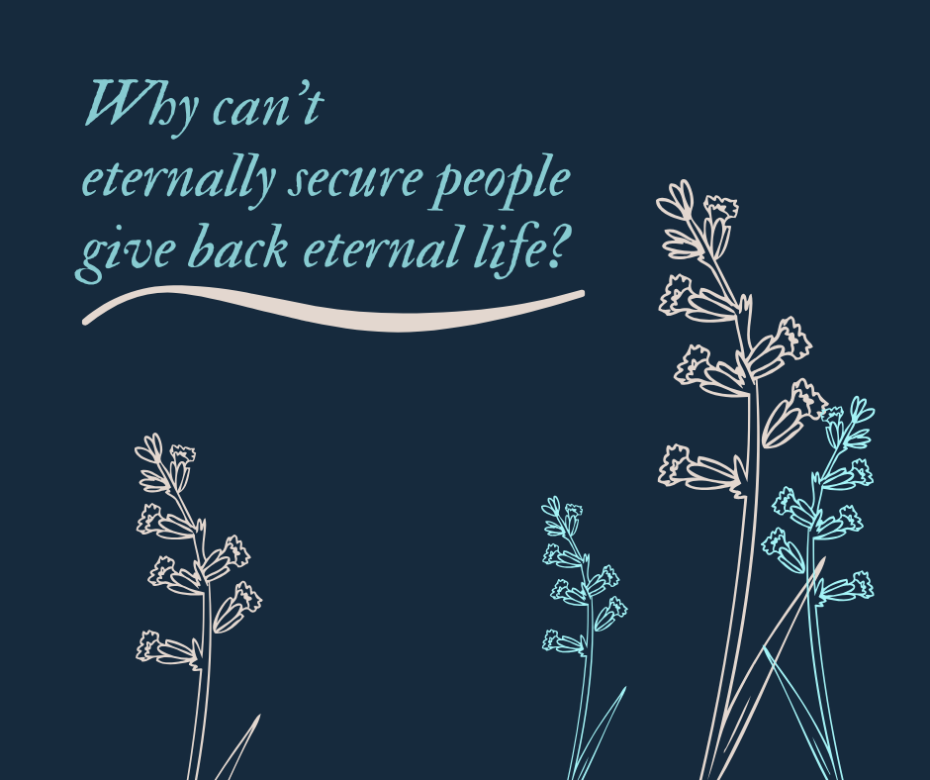A friend sent me this second-hand question: “Question from a friend online: ‘If God desires for us to always have free will, why would He not allow us to give back the free gift of eternal life if we so choose?’”
How would you answer that?
My answer involves two counter questions.
- Does God really want humans to have unlimited free will?
- Aren’t some things about us unchangeable?
First, God does not want us to have unlimited free will. If Hitler had unlimited free will, he would have conquered the world and killed every Jew on the planet. God restricted his free will in many ways.
God has kept each of us from doing some of the stupid things we thought of doing. He has only allowed us to do some dangerous and foolish things. He has saved our lives many times. We don’t always realize it. But He is acting on our behalf.
We have limited free will.
God is sovereign. He is all powerful and all knowing.
Even so, God does not have unlimited free will.
God is eternal (Deut 33:27; 1 Tim 1:17). He can’t stop being eternal. That is who He is.
God is true (John 3:33; Rom 3:4; 1 John 5:20). That means He can’t choose to lie: “God cannot lie” (Titus 1:2).
God is just (Ps 7:11). He can’t choose to be unjust.
God cannot violate His own nature. He is restricted by who He is. Of course, it is a good thing that God cannot choose to do evil. And it will be a good thing when in eternity future we cannot choose to do evil, either.
Second, some things about us are unchangeable too.
Jeremiah 13:23 says, “Can the Ethiopian change his skin or the leopard its spots?” The answer to each question is no.
Can anyone decide to give back his ethnicity? No. He might renounce his citizenship and become a citizen of another country. But his ethnicity does not change.
Can he change his height? No.
His personality? No.
His IQ? No.
His parents and grandparents? No.
We cannot change many of the things about us. A leopard has free will, but he can’t change his spots. An Ethiopian has free will. But he cannot change his skin.
Someone with everlasting life has ever-lasting life. He can’t change that.
But let’s say that free will did allow people to give back everlasting life. So, then we could give it away at any time, right? Including after we die! Won’t we have free will in eternity?
Of course, that too would be impossible. We won’t be able to change who we are then, any more than we can now. Admittedly, in the life to come, we will be sinless and thus we would never wish to give everlasting life back. Our choices will be limited to those that are not sinful. Our free will then will be even more limited than it is now. But in a good way.
Since we are sinners in this life, it is possible that a born-again person might get mad at God and in a moment of spiritual insanity want to give everlasting life back. Frankly, I’ve never met a person who was convinced he had everlasting life who indicated he ever wanted to give it back. It is people who don’t believe in eternal security who wonder about this question. But I suppose it might happen. If it did happen that a person with everlasting life decided he wanted to give it back (meaning he stopped believing in the promise of everlasting life that cannot be lost), the person would not get his crazy wish.
Once a person has everlasting life, that is what he has. To lose that life would mean that Jesus lied in John 3:16; 4:10-14; 5:24; 6:35; 11:26. Jesus cannot lie (Titus 1:2).
Having everlasting life makes you a different type of human forever. Free will cannot undo that.


